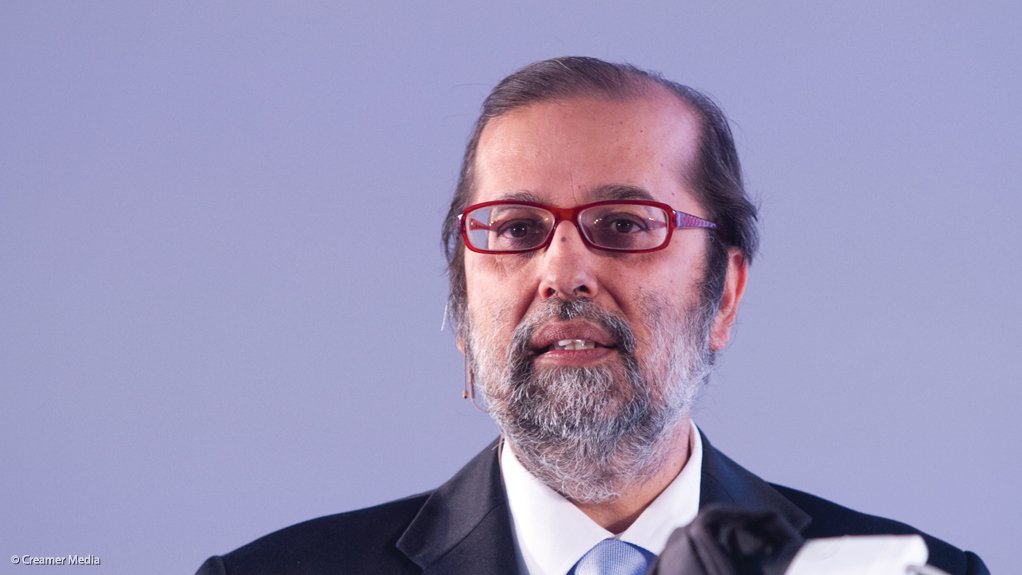The division of the Department of Communications (DoC) will not lay a platform for an ideal communications environment nor is it a positive step forward for the industry, proponents argue as they take aim at the new Ministries of “propaganda”.
This week’s announcement by newly re-elected President Jacob Zuma that the DoC would be split into the Ministry of Telecommunications and Postal Services, headed by former State Security Minister Dr Siyabonga Cwele, and the Communications Ministry, led by Faith Muthambi, have spurred concerns over propaganda and further fragmentation within the industry.
The Ministry of Telecommunications and Postal Services has been tasked with ensuring that the country “derives more value” out of the booming information communications and technology (ICT) industry and the postal services sector.
The Communications Ministry would be responsible for overarching communication policy and strategy, information dissemination and publicity, as well as the branding of the country abroad, while absorbing the Media Development and Diversity Agency; the Government Communications and Information System; the South Africa Broadcasting Corporation (SABC); Brand South Africa; and the Independent Communications Authority of South Africa (Icasa).
“We are astonished [by] what can only be described as an irrational move by President Zuma to split the Communications Ministry right down the middle. The bizarre fragmentation of broadcasting services from telecommunications as a whole at a time when the whole world must necessarily move towards technological convergence only spells out a recipe for disaster,” SOS Coalition coordinator Sekoetlane Jacob Phamodi told Engineering News Online.
He said instead of ensuring further stability for the embattled DoC, which had hosted five Ministers within five years, Zuma redefined the role and mandate of the Communications Ministry.
The removal of Communications Minister Yunus Carrim was “another case of moving five steps back to move one step forward for broadcasting," said Phamodi.
“Carrim was a singularly stabilising force in the Ministry, demonstrating effective and visionary leadership, particularly in his efforts to speed up the long-overdue digital migration process that has been retarded by long-standing conflict between broadcasters and electronics manufacturers,” he said.
Concerns have emerged that much of the traction gained in stabilising the department under Carrim could be reversed as confusion surfaced over how the two new Ministries would tackle an ever-converging world.
Carrim, who replaced axed Minister, Dina Pule, in July last year, had vowed to place the DoC on a firmer footing to deliver far more effectively and had developed a strategy and programme for the period until the 2014 elections in May this year.
Among the promised outcomes was a less fragmented ICT sector, for which “key measurables” were proposed to assess the industry’s state.
Carrim had fast-tracked the policy aimed at revamping the legislative landscape of South Africa’s ICT industry , with the National Integrated ICT Policy White Paper expected to be published later this year.
“The fragmented approach adopted at the advent of democracy does not [increase] efficiencies and, in future, will increasingly hamper the capacity of the sector to fulfil socioeconomic development. The silo approach to the sector needs to be reviewed so that we do not inadvertently create a digital divide, where access to [high]-quality communications services, technologies, infrastructure and content is a privilege of the elite, rather than a right for all,” the document highlighted.
The policy was intended to provide an “up-to-date” and somewhat “future-proof” framework for the adoption of new ICT legislation more suitable to the ever-changing industry, Carrim said at the time.
The increasing convergence of broadcasting and ICTs has led to a global trend of convergence where broadcasting and telecommunications were increasingly integrated, with Zuma’s three previous Ministers responsible for broadcasting and ICTs all driving an integrated approach that had led to the ICT Green Paper currently under discussion.
“The new Ministry appears to be a setback that will undermine the ability of South Africa to harness the democratising and developmental potentials of communication technologies,” the Right2Know Campaign said in a statement.
“This new split seems to have been done in haste and without reference to the Green Paper on ICT Policy or the work that has been done on technological convergence,” the Democratic Alliance (DA) added.
Further, Icasa should be a fully independent Chapter 9 institution.
“It should be with telecommunications and postal services in pursuit of communications convergence and in support of economic ingenuity and consumer-friendly competitiveness that will see South Africa become an ICT-empowered nation of the world,” said DA shadow Minister of Communications Marian Shinn.
Phamodi questioned Icasa’s ability to regulate telecommunications and postal services when it was housed under the newly reoriented Communications Ministry, while the Right2Know Campaign stated that the organisations now lodged under the new Communications Ministry were meant to have “degrees of statuary independence from the executive”, with “critical mandates” to defend and advance constitutional rights to freedom of expression and access to information.
Right2Know Campaign believed the new Cabinet was a “blow” to the right to communicate and would ensure the “good story” was told, while the SOS Coalition questioned whether the SABC would be forced to buckle under the call for 70% good news broadcasting.
“By conflating communication policy and government propaganda, the President is signalling an intention to ensure various institutions will be used to amplify government propaganda rather then to create a democratic communications system for all South Africans,” said Right2Know.
Further, the DA indicated that the division set the stage for the emergence of the “Ministry of Propaganda” with the re-emergence of a Telecommunications and Postal Services Ministry, and with the appointment of Cwele, Shinn accused the government of intending to “control the Internet, its various platforms and electronic surveillance”.
“Under Cwele’s stewardship of the Ministry of State Security, there have been growing concerns about the use and misuse of interception of communications,” the Right2Know campaign said.
“The splitting of the DoC to form a separate Telecommunications and Postal Services Ministry may not be perceived as a positive step forward,” said Frost & Sullivan Africa programme manager Lakshmi Narayanan.
But he recommended the service providers stay positive and proactively discuss their priorities with the new Ministry to focus on spectrum allocation and other priorities.
Cell C CEO Jose Dos Santos said the operator would engage the leadership of both Ministries to gain some clarity on the various responsibilities of each Ministry in the governance of the telecommunications industry and ICT in general, particularly with Icasa shifted to a different Ministry to that of telecommunications operators.
However, Cell C was confident that the restructuring of government would not hamper the mobile termination rates (MTR) regulatory process currently under way and that other initiatives, including digital migration and high-demand spectrum allocation, would remain a priority.
Icasa was currently reviewing the wholesale voice call-termination markets after its 2013 glide path was declared “invalid and unlawful” by the South Gauteng High Court in March.
The South Gauteng High Court had suspended its decision for a six-month period from April to September to allow Icasa to complete a costing exercise and “correct” the “irrational and arbitrary” determination of the regulations fairly.
EMAIL THIS ARTICLE SAVE THIS ARTICLE
To subscribe email subscriptions@creamermedia.co.za or click here
To advertise email advertising@creamermedia.co.za or click here













